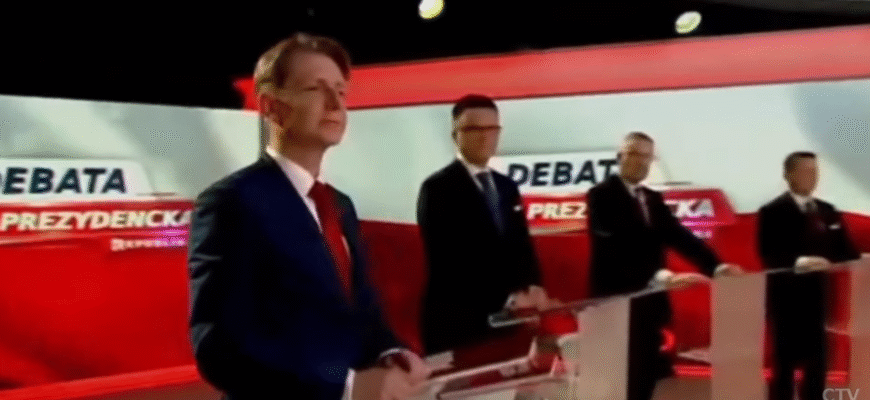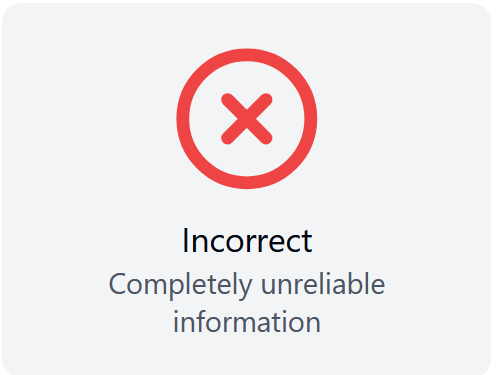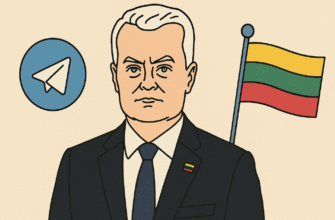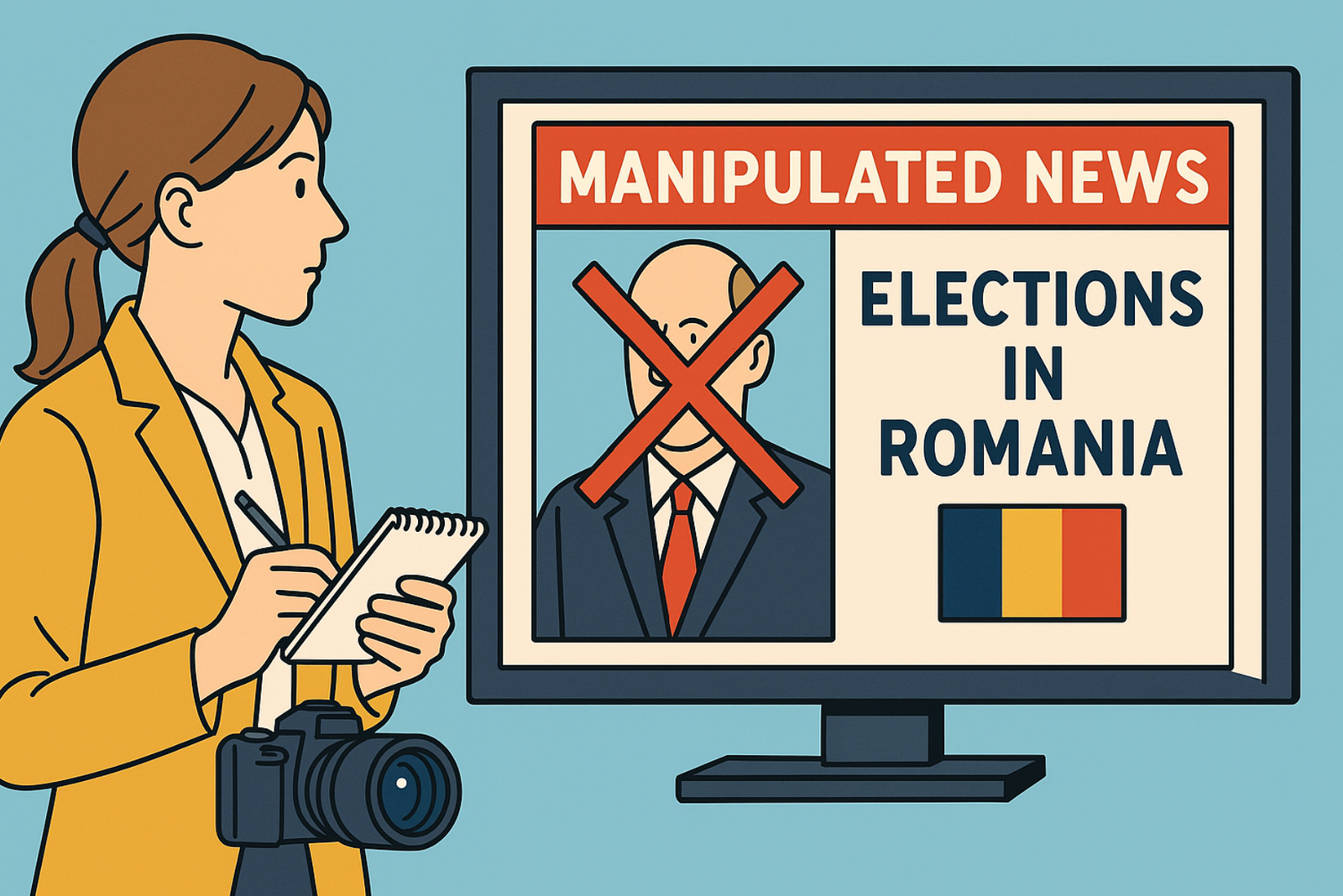On April 18, 2025, the CTVBY YouTube channel, belonging to a Belarusian state-owned media outlet, posted an author’s program by Belarusian philosopher and propagandist Alexey Dzermant called “Smysly” (Meanings), which was dedicated to analyzing the pre-election situation in Poland.
In particular, the program stated:
It’s worth noting that the level of discussion was simply below the baseboard. It feels like the Polish establishment lives in a parallel reality. They have nothing except the EU and the USA. Multipolarity, the collective East, SCO-BRICS and other elements of the new international reality are not discussed at all. Issues of multi-vector policy, normalization of relations with eastern neighbors are not even on the agenda. Poland’s independence and sovereignty are just slogans. But there is no understanding of how to ensure them. Warsaw’s entire international policy revolves around the illusion of Euro-Atlanticism. And this means that Poland is rapidly moving towards a crisis of its statehood.
Our verdict based on the conducted analyses:
Verdict: Incorrect
Reasons:
- The thesis or statement is completely false: information from several sources or opinions of several experts in a specific field contradict it.
- The cause-and-effect relationships and connections clearly do not exist as claimed.
- When quoting, substantial parts are omitted, rearranged, changed, or incorrectly translated from a foreign language, resulting in a fundamental change in the meaning of what was said.
- The event occurred in substantially different aspects than claimed.
Full video:
FIMI analysis (Foreign Information Manipulation and Interference)
| Component | Manifestation |
|---|---|
| Actor | Alexey Dzermant — propagandist affiliated with state media and analytical structures in Belarus |
| FIMI Type | Demonization, delegitimization of institutions, distortion of facts, discrediting candidates |
| Goal | Undermine trust in Polish democracy, strengthen anti-Western agenda |
| Techniques | Decontextualisation, Cherry-picking, Framing, Strategic omission, Delegitimisation |
| Audience | Belarus, Russian speakers in the EU, internal opposition to the EU |
Key narratives and disinformation techniques
1. Delegitimization of the electoral process
The program presents democratic elections in Poland as chaotic and fictitious. It is claimed that the debates were a “disgrace,” and Trzaskowski’s absence is interpreted as cowardice. This is aimed at undermining trust in democratic institutions and instilling the idea that elections are merely a spectacle.
2. Discrediting Trzaskowski
Trzaskowski is accused of lacking ideas, arrogance, and having an anti-Polish position. Polls are interpreted in a favorable way, ignoring other data showing his steady support. Participation in pro-European events is presented as a betrayal of national interests.
3. Heroization of Nawrocki and Mentzen
Radical statements by Nawrocki and Mentzen are presented as reasonable and responsible, while alternative positions are presented as subservient to the West. This creates a distorted perception of the political spectrum and increases polarization.
4. Normalization of pro-Russian discourse
Poland is presented as a puppet of the US and EU, and the “eastern vector” is portrayed as salvation. It is claimed that the country is moving towards a crisis of statehood, despite the lack of factual basis for such statements.
Fact-checking: key theses
| Statement | Status | Comment |
|---|---|---|
| Trzaskowski’s support fell by 4.8% | 🟡 Partially | Only according to one poll; others show stability or growth in support. |
| Nawrocki gained +5.4% | 🟡 Partially | Need to specify sources — only one poll reports such growth. |
| “Empty chair” — symbol of crisis | ❌ Manipulation | Interpretation of a fact in a propagandistic manner. |
| Poland on the verge of state collapse | ❌ False | No grounds, institutions function stably. |
| EU and US — the only reference points for Polish policy | ❌ Distortion | Poland also conducts regional cooperation policy (V4, Ukraine, etc.). |
Alexey Dzermant’s program is an example of highly toxic FIMI content aimed at undermining trust in Poland’s democratic institutions, distorting facts about elections and candidates, discrediting the EU and Poland’s Euro-Atlantic choice, as well as promoting a pro-Russian agenda through criticism of Euro-Atlanticism. The information impact methods used contribute to increasing political polarization and undermining stability in the region.
Now let’s perform an analysis of disinformation narratives and semantic analysis:
The video contains distortion of facts about the debates, where attention is focused on the absence of a key candidate, creating a false impression of his cowardice or arrogance.
concept substitution
The content creates division between candidates, emphasizing their contradictions and disagreements, which can increase polarization among voters.
Use of alarmist language and emotionally charged statements about security, which can cause fear and uncertainty among viewers.
The content contains notable distortions of facts and manipulations that may affect viewers’ perception of the political situation in Poland.
security and military policy
Polish elections 2025
Polish foreign policy
negative
discontent
disappointment










